Table of Contents
You know it– just one wrong call or text can land your campaign in serious trouble. We’re talking lawsuits, massive fines, or worse, getting your entire phone banking operation flagged as spam. This is where this phonebanking compliance guide comes into play.
With regulations tightening across the US, EU, and Canada, staying compliant isn’t just some box to tick—it’s how you protect your team, your supporters’ trust, and your ability to actually reach voters.
In 2023, the FCC issued a record $299 million fine for illegal robocalls, making it crystal clear: non-compliance isn’t worth the risk. This phonebanking compliance guide breaks it all down—no fluff, just the essential rules and best practices to keep your campaign safe, legal, and running at full speed.
Why does phonebanking compliance matter for your campaigns?
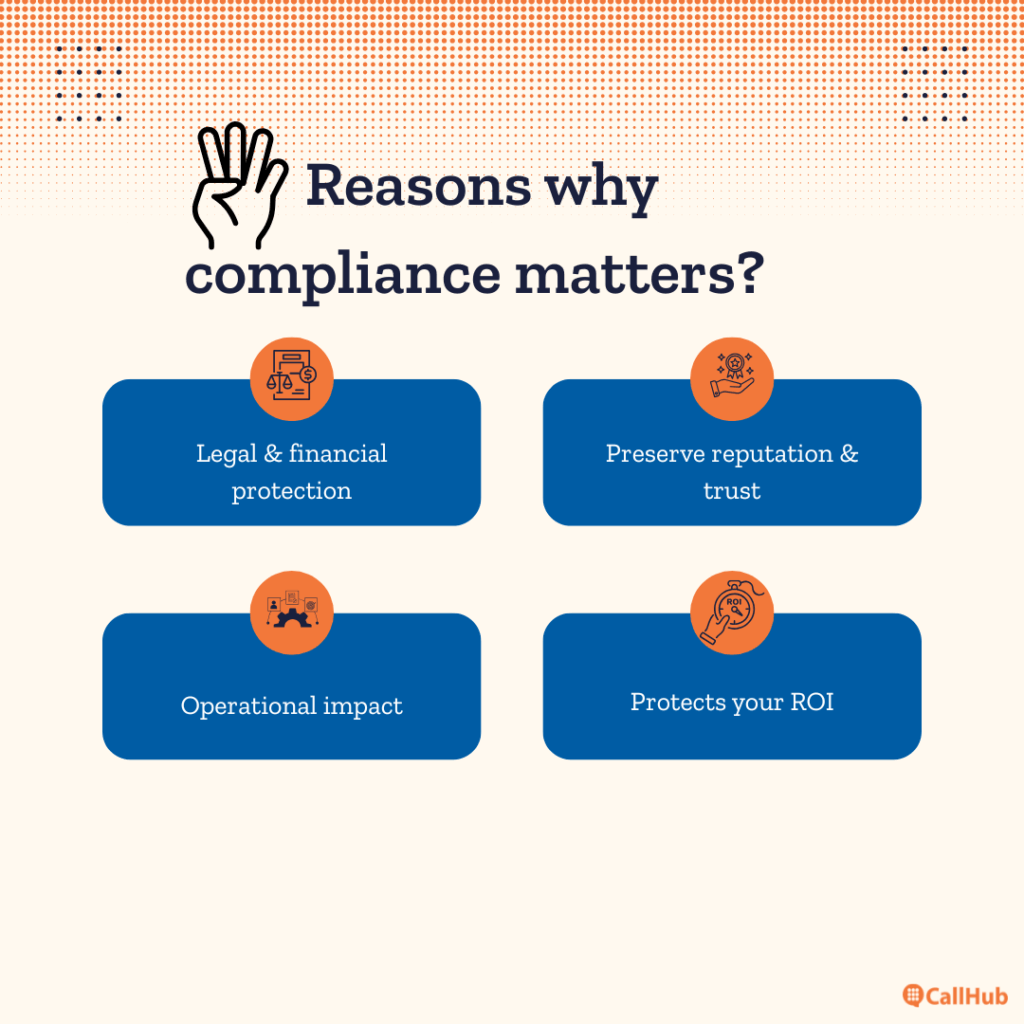
Campaigning often means working with incredibly sensitive supporter data—names, phone numbers, addresses, even donation or employment details. If this information falls into the wrong hands, it can be exploited for identity theft, phishing attacks, or financial fraud.
That’s why following phonebanking legal requirements is essential—to protect your campaign from data risks and keep supporter information safe.
Let’s see some reasons why the phonebanking compliance is important:
- Legal and financial protection: Compliance is not optional. One misstep can cost thousands in fines or lawsuits.
Example: In 2023, the FCC fined a phonebanking vendor $5.1 million for making over 1,141 robocalls without proper consent. Political outreach is not exempt from these rules.
- Preserve reputation and trust: People support campaigns they trust. Respecting privacy and getting clear consent shows you value them—and helps avoid your calls being marked as spam.
- Operational impact: Ignoring DNC lists or skipping consent can lead to your phone numbers being flagged as spam or even blocked. Since eight-in-ten Americans don’t answer calls from unknown numbers, keeping your number clean and compliant can significantly improve pickup rates.
- Protects your ROI: Every dollar and volunteer hour matters. Compliance keeps your caller ID reputation clean, boosts message deliverability, and ensures more meaningful conversations, not wasted dials.
Now, let’s delve into the legal requirements and rules of phone banking in detail, starting with the TCPA.
TCPA Rules for Phonebanking: What Campaigns Must Know
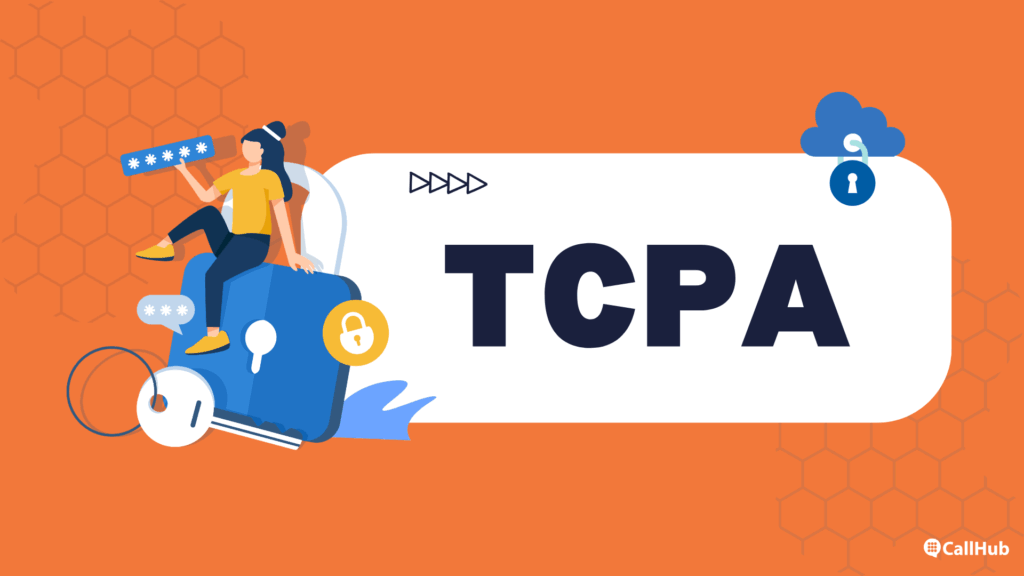
The TCPA(Telephone Consumer Protection Act) was enacted in 1991 to protect consumers from unwanted telemarketing calls, robocalls, and spam texts for residents in the USA. Violating TCPA phonebanking rules can result in fines ranging from $500 to $1,500 per call or text, making phonebanking compliance critical for campaigns to avoid costly penalties.
1. Take consent:
- For auto-dialed calls or texts, campaigns must have prior express written consent from the recipient.
- Phonebanking consent must be clear and separate from any purchase or donation agreement—no hidden opt-ins.
2. Calling hours and do-not-call (DNC)
- Calls and texts are allowed only between 8 AM and 9 PM local time (some states may have stricter hours).
- Campaigns must scrub their contact lists against the ‘Do Not Call Registry’ and maintain their own internal do-not-call lists to avoid contacting people who opted out.
Want to know when you can legally call in each U.S. state? Check out our guide ‘The Only TCPA Compliance Checklist You’ll Ever Need ‘ with a state-wise calling hours table
3. Disclosure and opt-out
- Agents must clearly identify the campaign or organization and the purpose of the call at the start. If a recipient asks to please stop or opt out, the campaign must honor that request immediately.
- Pre-recorded messages must include campaign identification, the purpose of the call, a callback number, and a clear opt-out mechanism. For example, on CallHub, you can select a default ‘Reply STOP to unsubscribe’ option for the first message sent.
- What pre-recorded messages should not include: AI content, misusing a different person’s voice illegally. If AI content is used, it’s best to mention –
“This call contains AI-generated content”.
Fined $6 million for using AI to fake Biden’s voice in robocalls
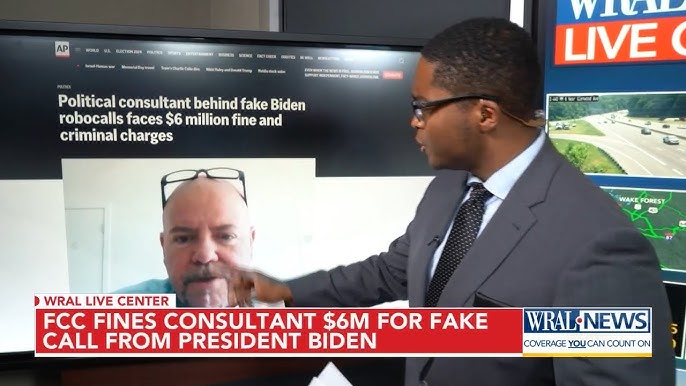
Source: YouTube
In 2024, political consultant Steven Kramer was fined $6 million by the Federal Communications Commission (FCC) for using AI-generated robocalls that mimicked President Joe Biden’s voice.
It was claimed that these phone banking calls aimed to mislead New Hampshire voters ahead of the Democratic primary. The FCC cited violations of regulations against inaccurate caller ID information and unauthorized use of AI in political communications.
4. Other TCPA rules to follow for campaign outreach
- Campaigns must comply with STIR/SHAKEN standards to authenticate calls and reduce spam labeling. A line about what is STIR/SHAKEN
- They should scrub contact lists carefully to avoid calling numbers without consent.
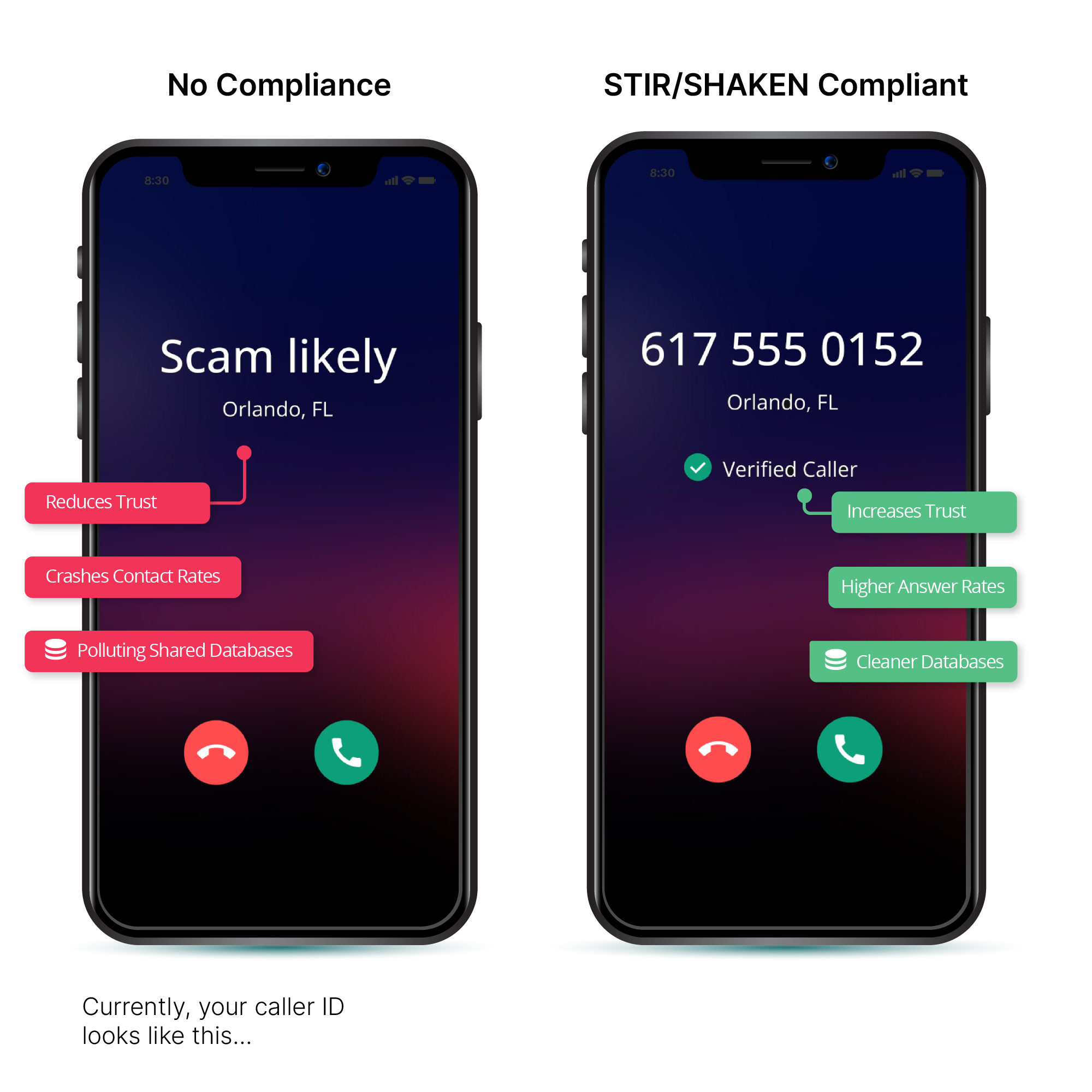
CallHub helps your campaign stay on the right side with TCPA compliant dialer and STIR/SHAKEN call authentication .
General Data Protection Regulation (GDPR-EU) for phonebanking
If you’re running your campaign in Europe—or reaching out to supporters in the EU—then GDPR applies to you.
Originally started in 1995, GDPR aims to protect voter and consumer data. The stakes are high; GDPR violations can cost up to €20 million or 2% of your global annual revenue— whichever is higher.
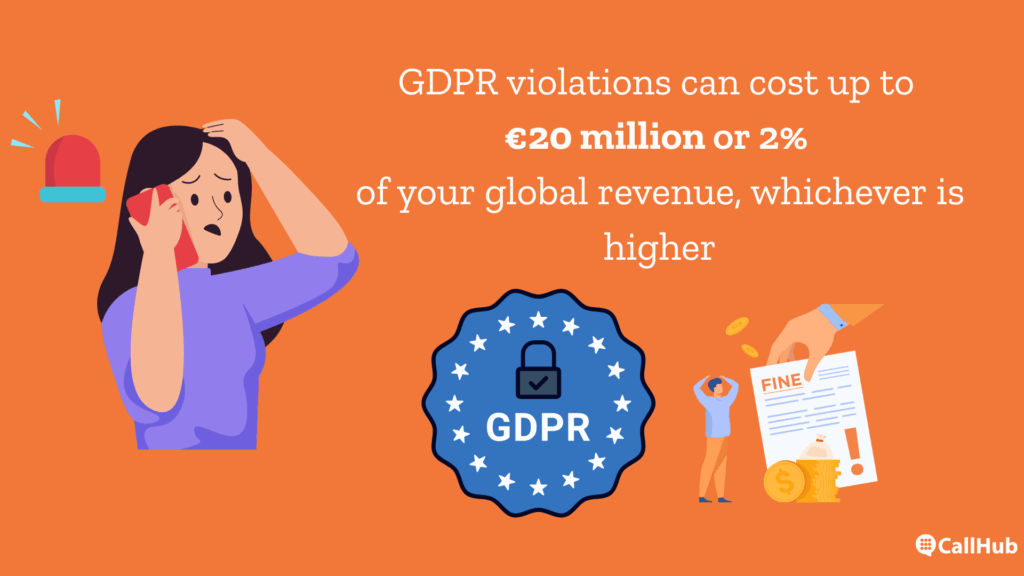
Here’s what you need to do to stay compliant and keep supporter trust:
1. Have a lawful reason to contact people
You need a valid reason (called a “lawful basis”) to reach out to supporters:
- Consent: The safest route—supporters clearly agree to be contacted.
- Legitimate interest: You can use this, but only if it doesn’t override a person’s rights.
For example, A nonprofit running a climate petition collects phone numbers through a web form. If the box is ticked and explains, “We may call you with updates,” that’s consent. If the nonprofit later uses those numbers for fundraising without further notice, that’s a GDPR risk.
2. Be transparent with your supporters
People have a right to know:
- Who you are
- Why are you collecting their data
- What do you use it for
- Who else might you share it with
- How long will you keep it
| Phonebanking best practice: Add a simple, clear privacy notice on your forms and landing pages. |
3. Get consent the right way
To stay compliant with GDPR, consent must be:
- Freely given: Supporters must opt in voluntarily—no pressure, no hidden requirements.
- Specific to the purpose: Phonebanking consent must clearly cover distinct uses—e.g., either voting updates or donation texts—not both bundled together
- Informed: People need to know who’s calling, why, and how their data will be used—described clearly and plainly
- Easy to withdraw: Withdrawing consent should be as simple as giving it
- Unambiguous: Phone banking consent requires a clear, affirmative action—no pre-checked boxes
For example, in 2019, a Belgian mayor was fined €2,000 for using email addresses collected for official business to send election campaign messages.
The mayor broke GDPR’s specific purpose rule by reusing official contact data without proper consent or a legal basis for campaign use.
| REMEMBER, ❌ No pre-ticked boxes. ❌ No “by signing up, you agree to everything” statements. |
4. Respect people’s data rights
Supporters have powerful rights under GDPR. You must make it easy for them to:
- Access their data
- Correct errors
- Delete their info (the “right to be forgotten”)
- Transfer their data
- Restrict or object to outreach
- Withdraw phone banking consent at any time or opt out.
Example: If a donor calls your campaign and asks to be removed from all future contact, you must honor that request and ensure it is done.
| NOTE: You usually have 30 days to respond to these requests. |
5. Be careful with cross-border data
If you’re collecting supporter data in the EU but storing it or calling from another country, you still need to protect that data under GDPR rules.
Use standard contractual clauses (SCCs) or a GDPR-compliant tool such as CallHub to ensure everything is legal.
6. Data security:
GDPR requires you to keep supporter data safe with:
- Technical safeguards: Like encryption, Two-factor authentication (2FA) , secure cloud tools
- Organizational safeguards: Like team training, clear policies, and limited access.
However, in the event of a data breach, you have 72 hours to notify individuals about the breach, or you will face a penalty.

CallHub is fully committed to phonebanking GDPR compliance and data security:
- It is SOC2, GDPR, and ISO 27001 certified
- Offers a Data Processing Addendum (DPA) to help you meet GDPR obligation
- Uses Amazon Web Services (AWS) with multi-level security, encryption, and strict access controls
- Supports SCCs and the EU-U.S. data privacy framework for lawful international data transfers
Up next, let’s discuss the CASL regulations to follow.
Canada’s anti-spam legislation (CASL) guidelines
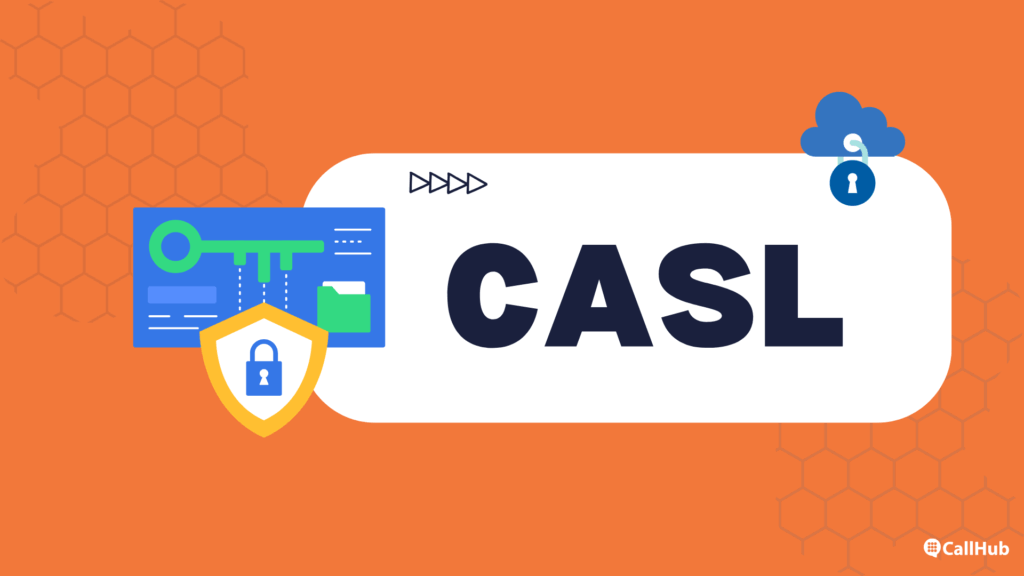
If you’re calling or texting anyone in Canada—or even just collecting contact data from Canadians—CASL applies. And its violations can cost you up to $10 million per violation for organizations, or $1 million for individuals.
Originally enacted in 2014, CASL is one of the toughest anti-spam laws in the world. Here’s what your campaign needs to do to stay on the right side of CASL:
1. Get proper consent from voters:
You must have phonebanking consent before starting off. There are two types of consent under CASL:
- Express consent (the gold standard):
Someone has actively agreed to receive messages from you—e.g., if a supporter signs up for a volunteer event form that says, “We may contact you about events.” - Implied consent:
Valid only in specific cases, like if someone donated, signed a petition, or volunteered with your campaign recently (within the last 2 years).
2. Identification and unsubscribe/opt-out
Every phone call you make or every text message you send must tell people:
- Who is contacting them (organization name)
- Why are you contacting them (the reason)
- How can they reach you back (email, phone number, or website)
| For calls: On a phone call, your agent must state their full name and campaign name upfront. For texts: On a text, include a clear identifier: “This is [Campaign Name]. Learn more: [website] |
3. Include an unsubscribe option
People must be able to opt out easily—from every message you send.
- For SMS: Include a simple line like “Reply STOP to unsubscribe.”
- For calls: Offer an opt-out verbally during the call or through a voicemail message.
For example, in 2019, a CEO was fined $100,000 because their company’s emails didn’t include a working unsubscribe button, leading to foreclosure after the penalty was imposed.
4. Record retention
Under CASL, you must retain proof of express phone banking consent for at least 3 years or 36 months after your last message to that contact. This includes:
- Timestamped records of consent
- Source of phonebanking consent (e.g., web form, event sign-up)
- Audit logs showing message history and consent status
| About the 3-year rule: The 3-year transitional rule only applies to relationships that existed before July 1, 2014. It allowed campaigns to assume implied consent for 36 months after that date—but only if you were already sending messages back then. For any relationship formed after July 1, 2014, you must follow the standard CASL rules: • Implied consent generally lasts 2 years (for donations, volunteer actions, etc. • Express consent lasts until the person withdraws it |
5. Exemptions for nonprofits
Some messages from nonprofits and political groups may not require full CASL consent rules, such as when contacting existing members, donors, or volunteers. But you still have to:
- Clearly say who you are in every message.
- Always include a way for people to unsubscribe or opt out.
To read more in detail about CRTC and CASL rules for outreach in Canada, check out our full blog: CRTC & CASL: Rules For Outreach Campaigns In Canada
Your complete phonebanking compliance guide checklist
| Toolkit | U.S. (TCPA) | EU (GDPR) | Canada (CASL) |
|---|---|---|---|
| Opt-in / Consent | Written prior | Explicit and revocable | Explicit |
| Record retention | ≥ 4 years | As per the retention policy | ≥ 3 years |
| DNC | National + internal | No DNC lists – consent rights apply instead | N/A |
| Calling hours | 8 AM–9 PM local | N/A | Follow local rules |
| Disclosure | Identify the caller/organization | Transparent notice | Identify + unsubscribe |
Stay compliant and connected with CallHub.
At the end of the day, compliance isn’t just about rules—it’s about showing respect for your supporters and making sure your message actually gets through. When you stay on top of TCPA, GDPR, and CASL, you protect your campaign and build trust where it matters most.
CallHub is built with compliance in mind, so you can focus on connecting—not worrying about fines.

